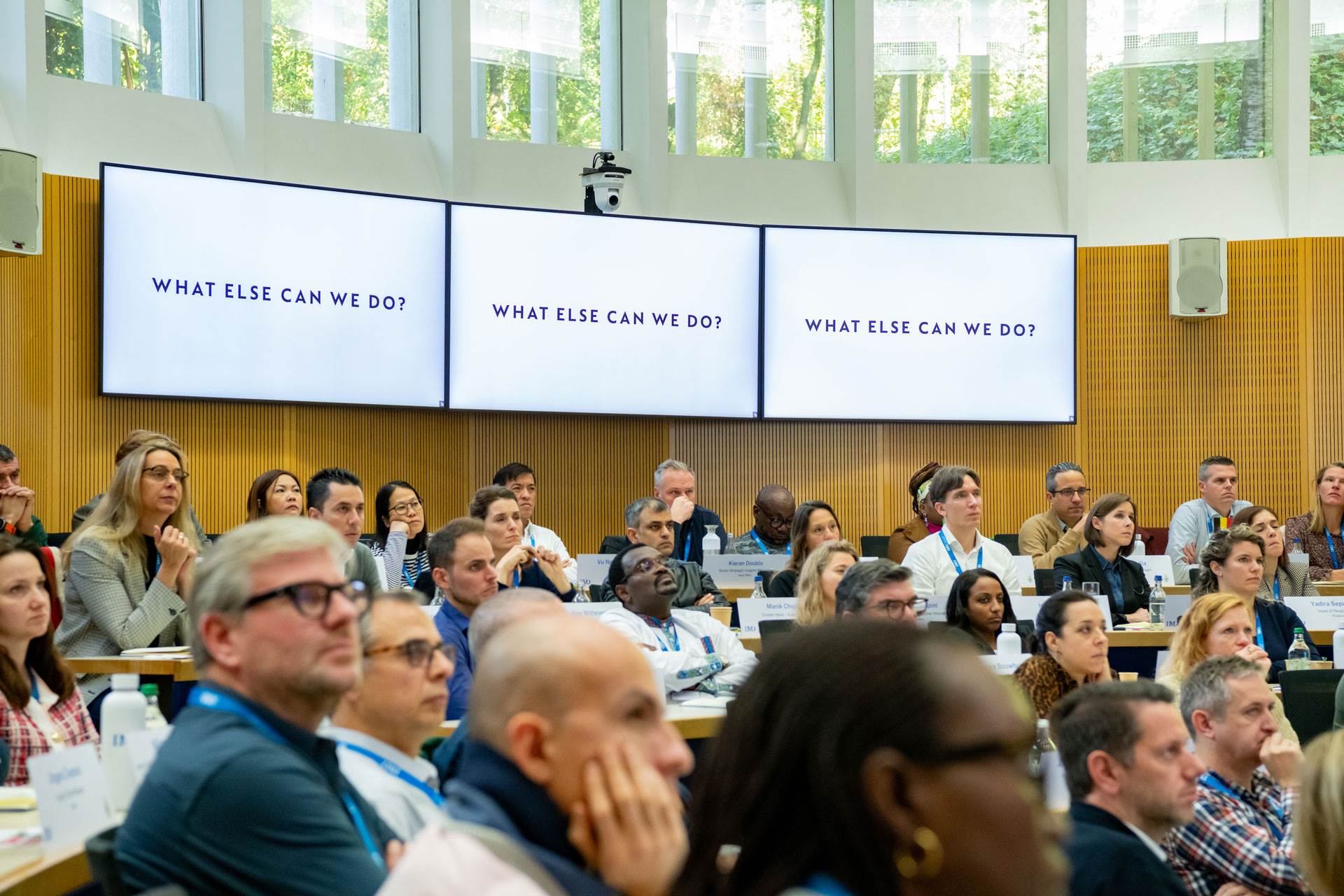IMD business school for management and leadership courses



Our approach to sustainability
Our approach to sustainability is firmly anchored in IMD’s purpose:
“Challenging what is, inspiring what could be, we develop leaders and organizations that contribute to a more prosperous, sustainable, and inclusive world.”
As a leading academic institute with Swiss roots and global reach, we share responsibility for contributing to a more prosperous, inclusive, and sustainable world.
We envision our role in two ways:
- Influencing business to be more sustainable through facilitating learning, developing and disseminating research, and driving partnerships and outreach.
- Demonstrating our commitment to sustainable behaviors through our campus operations and responsible and inclusive employment practices.

Our key frameworks
Our strategy is based on our commitments to the United Nations Sustainable Development Goals (SDGs) and the Principles for Responsible Management Education (PRME) outlined in an institutional policy.
The SDGs where IMD has the most significant impact are:
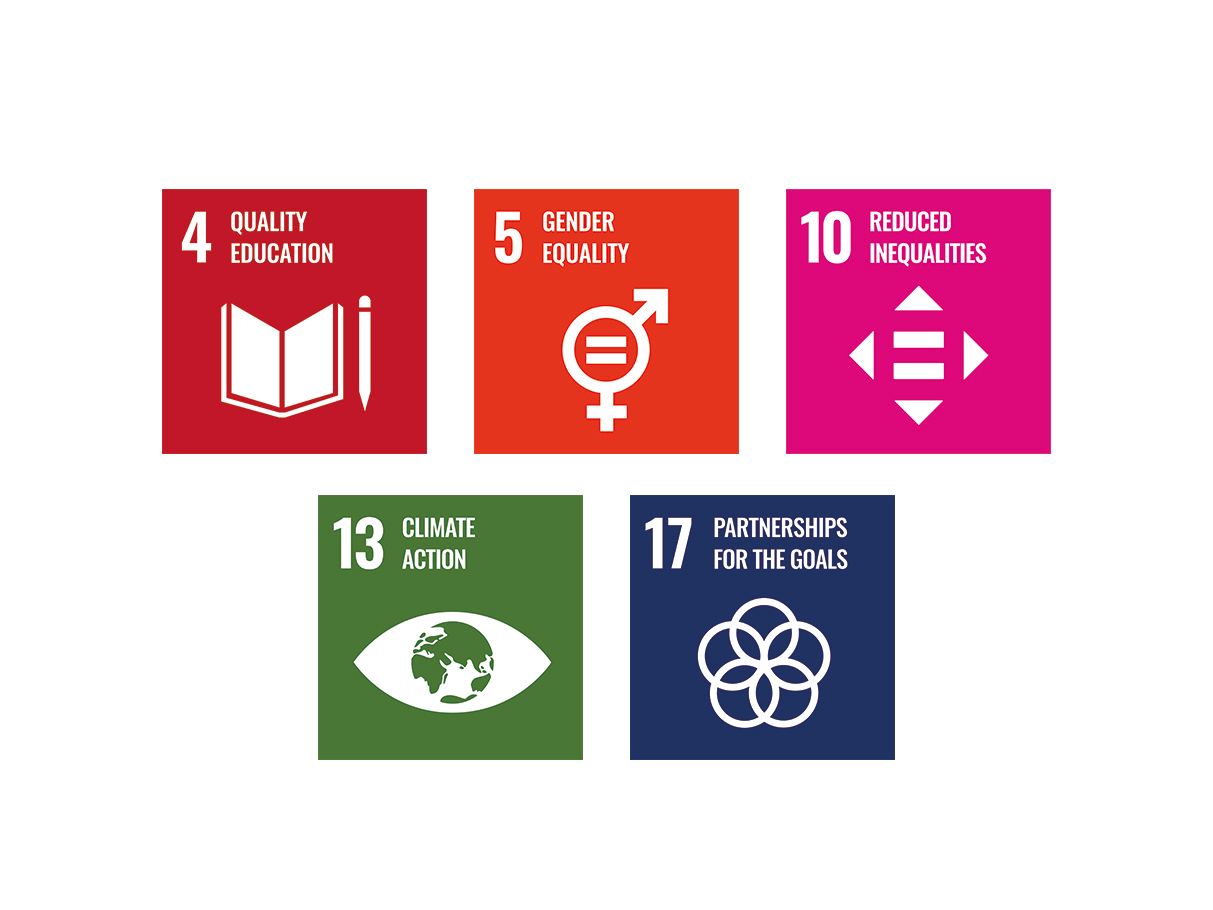
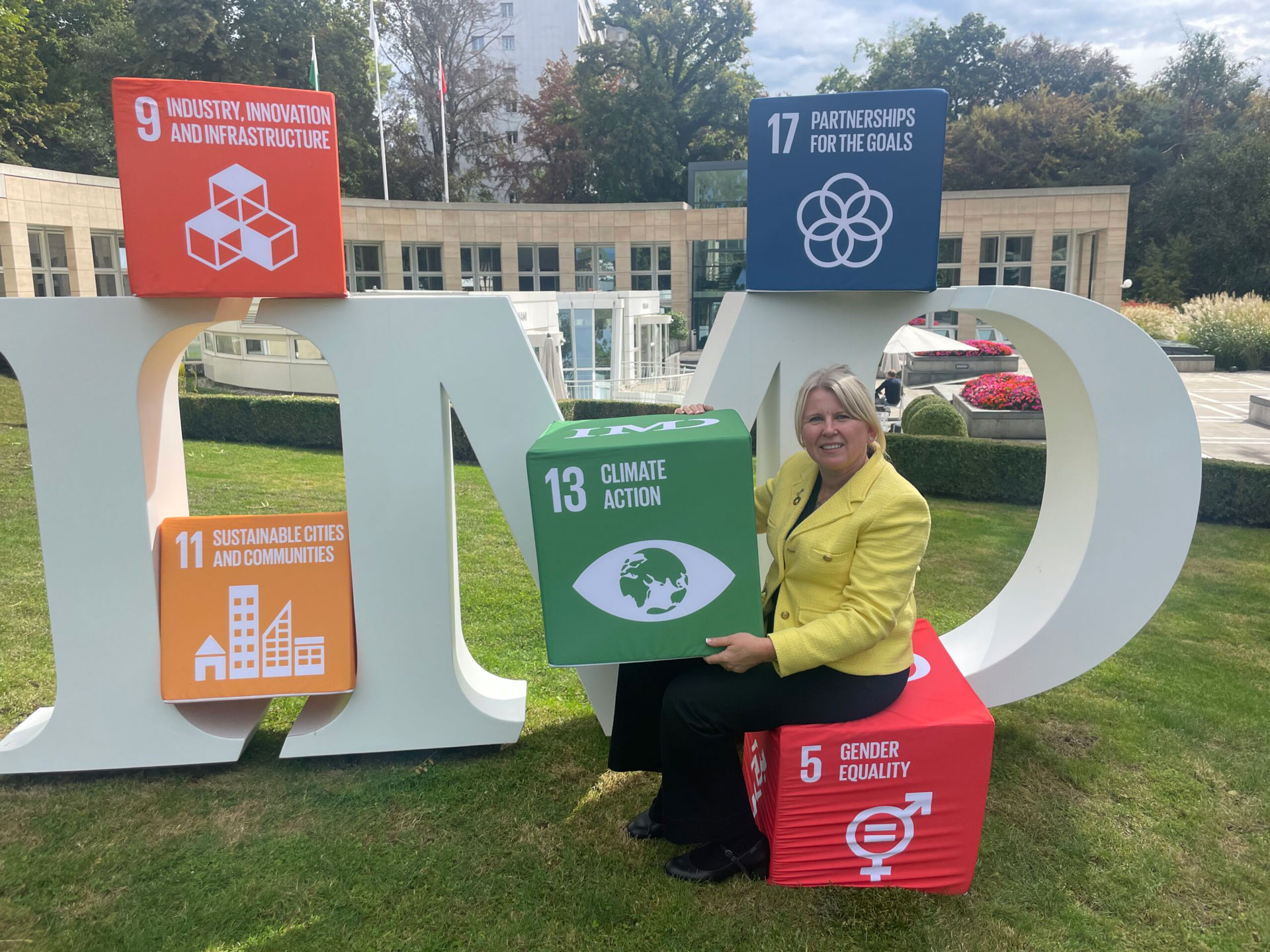


“We magnify our impact by developing responsible leaders and organizations through innovative pedagogy, rigorous and relevant research, and strong partnerships. That’s our handprint. We must also manage our footprint and walk the talk in our sustainable operations.”
The seven Principles for Responsible Management Education, which were refreshed in 2023, guide our work:
![]()
We study people, organizations, institutions, and the state of the world to inspire responsible management and education practice.
![]()
We place organizational responsibility and accountability to society and the planet at the core of what we do.
![]()
We transform our learning environments by integrating responsible management concepts and practices into our curriculum and pedagogy.
![]()
We advance responsible management education to foster inclusive prosperity in a world of thriving ecosystems.
![]()
We engage people from business, government, civil society, and academia to advance responsible and accountable management education and practice.
![]()
We adopt responsible and accountable management principles in our governance and operations.
![]()
We share our successes and failures with each other to enable our collective learning and best live our common values and purpose.
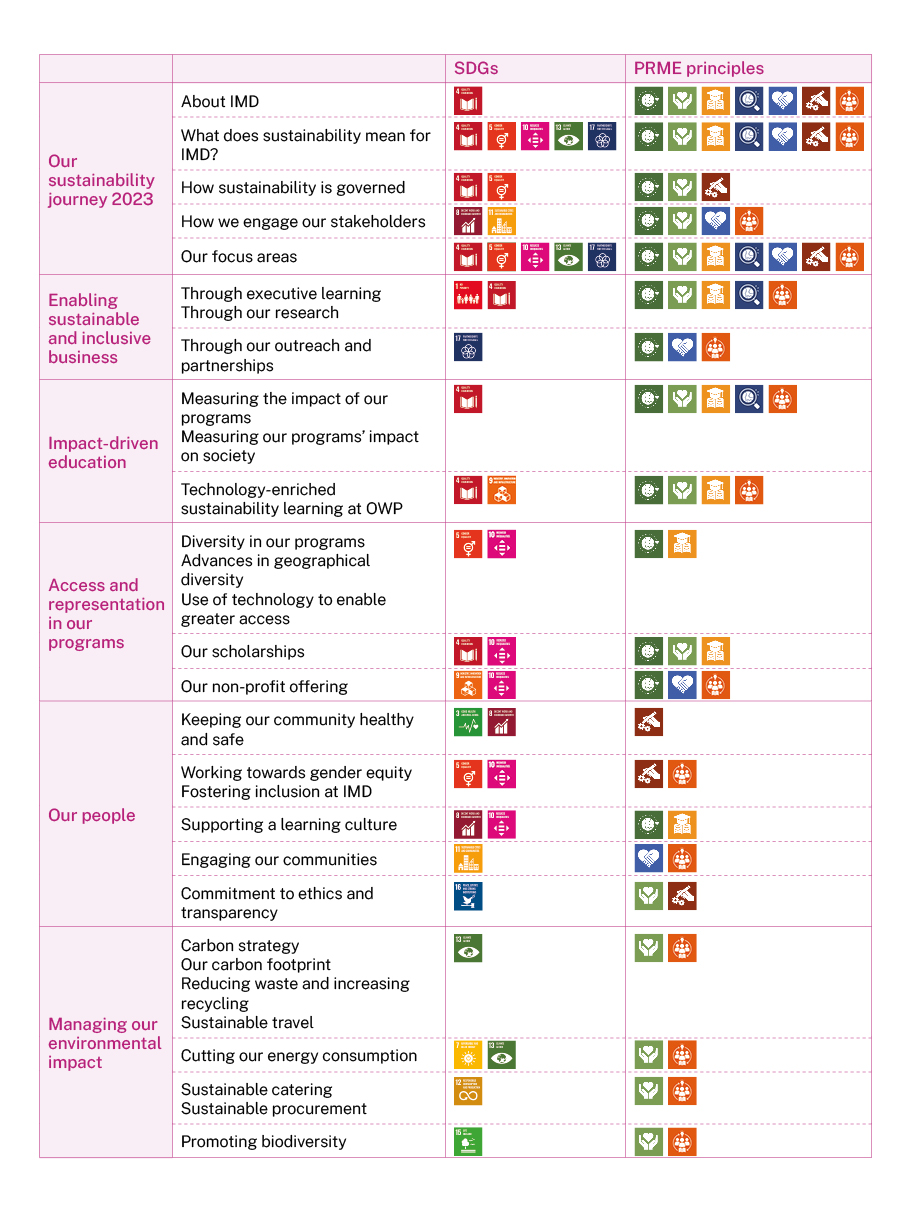
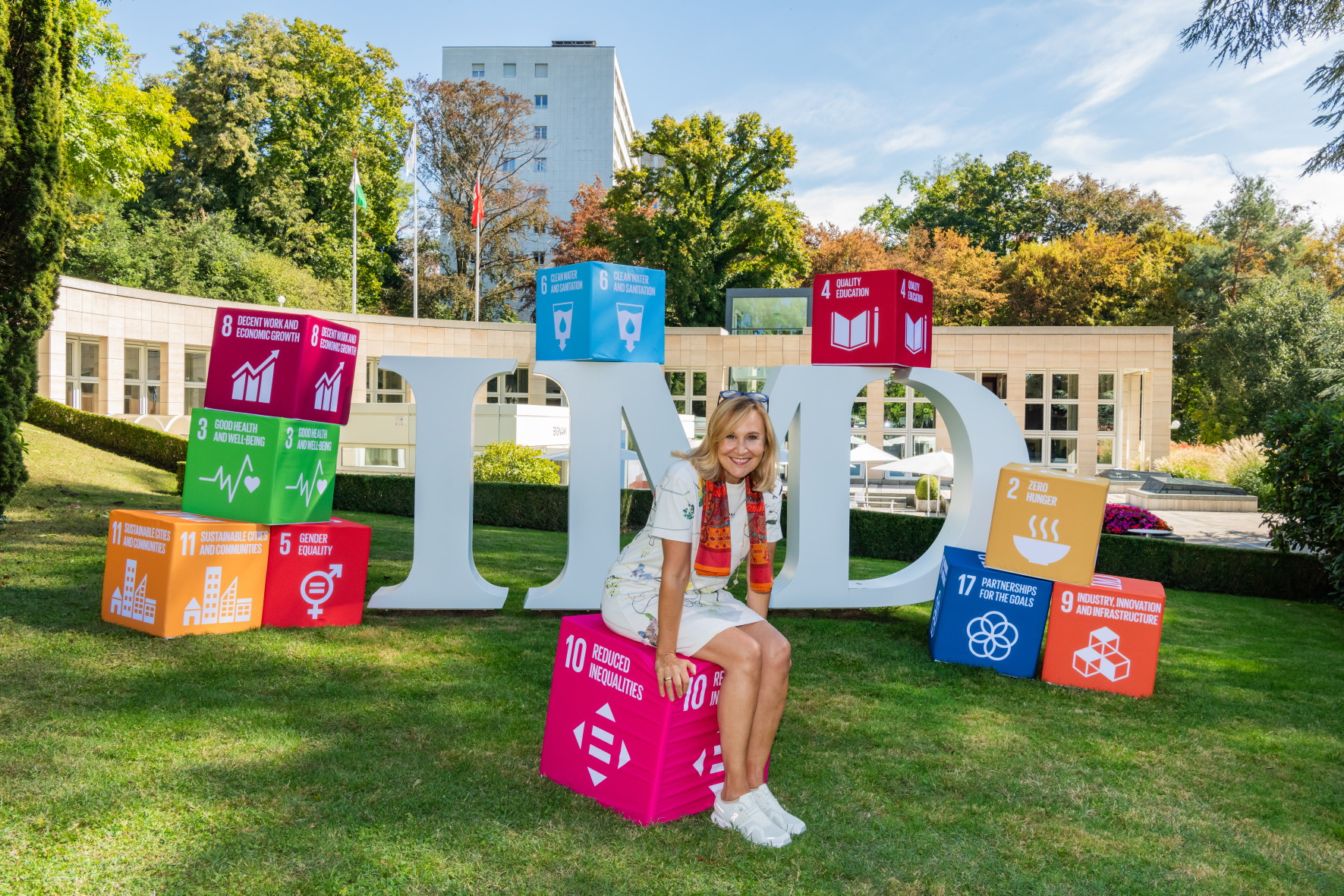
How sustainability is governed
Ensuring a holistic approach to sustainability requires cross-functional collaboration and strong governance. The strategy is led by the Chief Sustainability Officer, who reports to the President and Executive Committee, comprised of the heads of key functions.
The Executive Director and Steering Committee of the Center for Sustainable and Inclusive Business set the direction for research on sustainable business and its contribution to innovative pedagogy and partnerships.
In 2023, we established a Green Council to oversee the implementation of actions identified to reduce the campus’ carbon footprint. It includes the Chief Sustainability Officer, the Head of Campus Services, who oversees the operational sustainability and safety practices, the Chief Finance and Administration Officer, the Chief Operations Officer, the Dean of Asia and Oceania, and the Dean of Programs and Innovation.
Our Diversity, Equity, and Inclusion (DE&I) strategy is led by our Chief DE&I Officer, who reports to the President, works closely with our Head of Human Resources (HR), and is accountable to the Executive Committee.
The Chief DE&I Officer engages with internal stakeholders and external partners on DE&I activities, implemented according to a three-year plan, and collaborates with the Head of HR to ensure a caring and inclusive workplace.
Our DE&I strategy focuses on influencing leaders and organizations, driving innovation at IMD, and nurturing a caring and inclusive culture. It is based on our DE&I house model, which has been successfully used by several Fortune 500 companies.
IMD’s approach embraces the core five elements of diversity, which are: gender, nationality, sexual orientation, age, and disability.
This is supported by a strong focus on inclusion and inclusive leadership. We aspire to seamlessly embed the latter into our programs, research, and working environment.
To demonstrate continuous progress, we drive and monitor our impact through regular employee engagement surveys. Our DE&I Council, which consists of employees across functions and seniority, as well as MBA and EMBA representatives, plays a significant role in ensuring all voices are represented. The Council guides DE&I initiatives on campus. Pedagogy is managed by the faculty Dean.
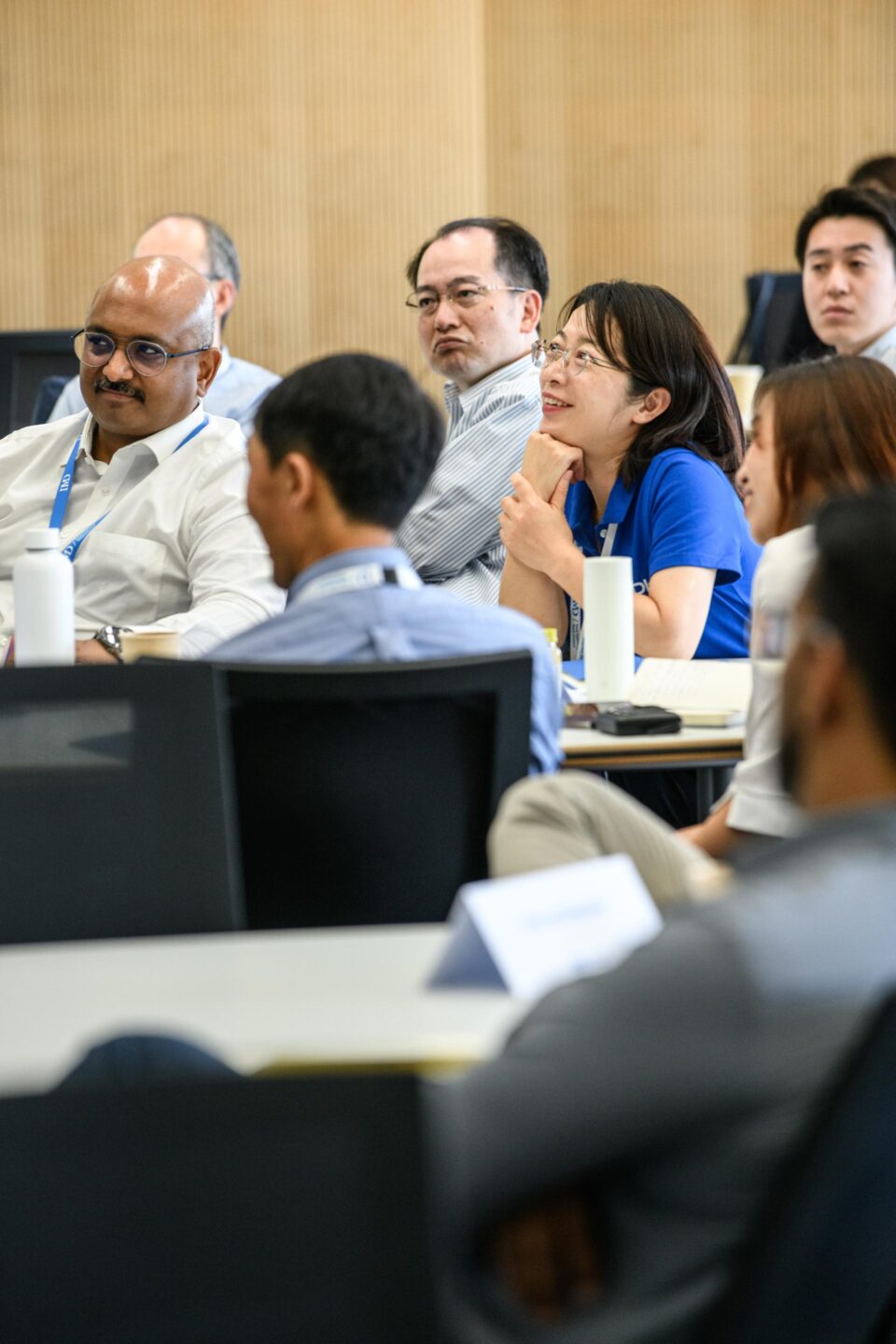
How we engage our stakeholders
We communicate our progress in sustainability regularly and engage our stakeholders to ensure their feedback is reflected in our approach.
How we engage our stakeholders
We communicate our progress in sustainability regularly and engage our stakeholders to ensure their feedback is reflected in our approach.
- Impact-driven education
- Enabling sustainable and inclusive business
- Long-term strategy
- Risk management
- Ethical business
- Quarterly Supervisory Board
meetings - Biannual Foundation Board
meetings - Bimonthly Executive Committee
meetings
- Programs meet learning objectives
- Innovative pedagogy
- Data privacy
- Access to applicable research and thought leadership
- Regular meetings with client relationship managers
- Program co-creation
- Roundtables, communities, and webinars
- Digital newsletters
- Networking opportunities
- Access to thought leadership
- Information on programs
- International Alumni Association
- Alumni reunions
- Club events
- Online platform
- Webinars
- Digital newsletters
- Research
- Program development and quality
- Diversity, equity, and inclusion
- Sustainable campus operations
- Accreditation reports
- Accreditation visits and reviews
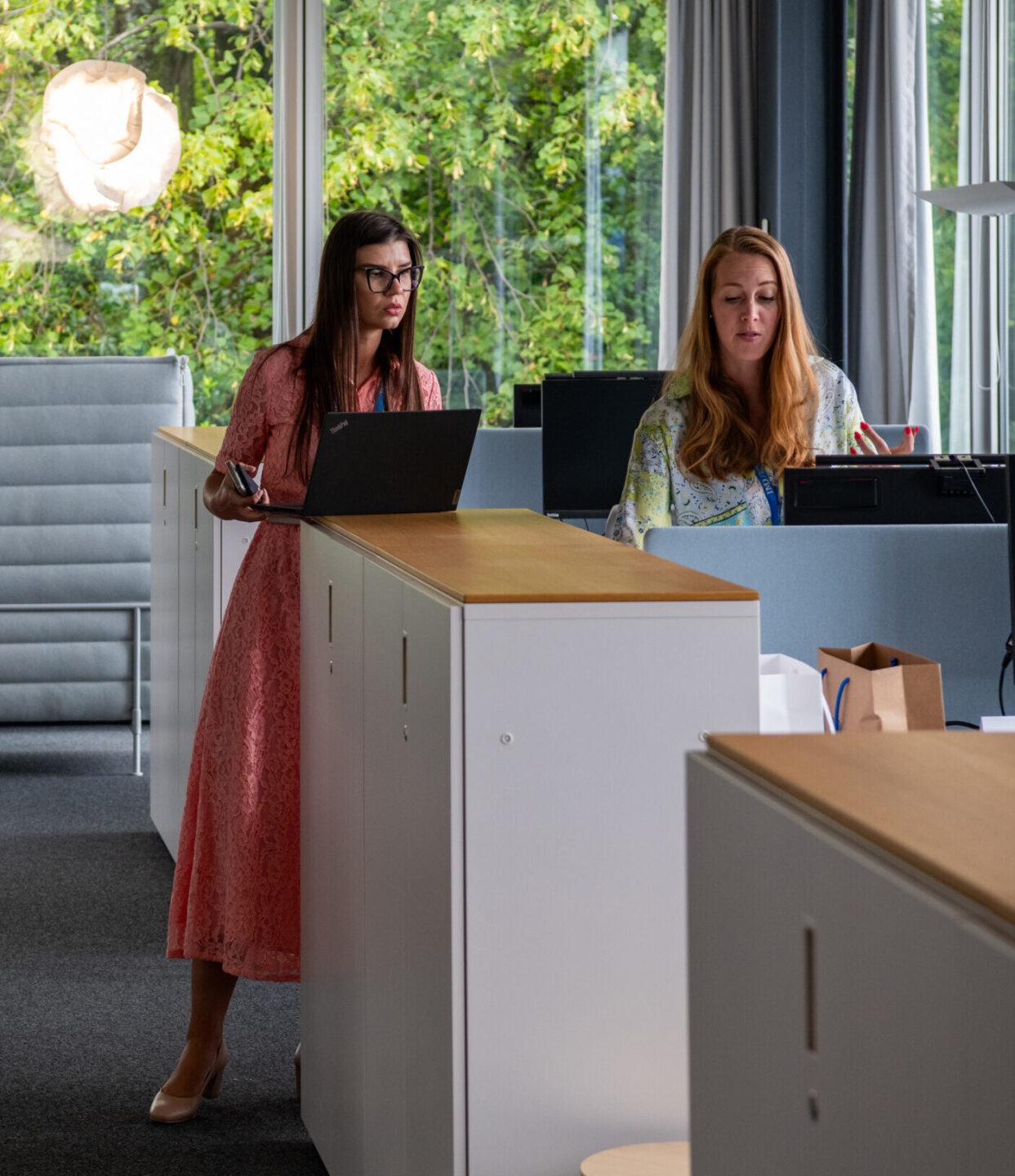
- Working conditions
- Diversity, equity, and inclusion
- Health, Safety, and Well-being
- Employee development opportunities
- Employee engagement and feedback
- Employee intranet
- Community meetings
- Annual performance reviews
- Development plans
- Annual employee engagement surveys
- Monthly sustainability newsletter
- Community service events
- Ethical business practices
- Timely payments
- Transparency and fairness in procurement
- Support to local economy and social cohesion
- Employee volunteering
- Regular meetings with local government authorities
How we track our progress and plan to extend our impact
We track our progress in our sustainability performance through regular communication with our stakeholders, such as presentations to the Supervisory Board and Executive Committee, a monthly newsletter to all employees, and reporting for PRME and EcoVadis. The Green Council tracks and oversees progress on our carbon reduction ambitions.
We plan to extend our impact by continuing to make steady progress on our key material issues.
This includes increasing our offerings in sustainability executive education programs, integrating sustainability topics into existing programs, and producing and disseminating rigorous and applicable research.
We will continue to improve our impact measurement processes and leverage technology to extend the reach of our influence. Deepening our partnerships with organizations such as Business Schools for Climate Leadership, PRME, and the World Business Council for Sustainable Development will magnify our impact.
